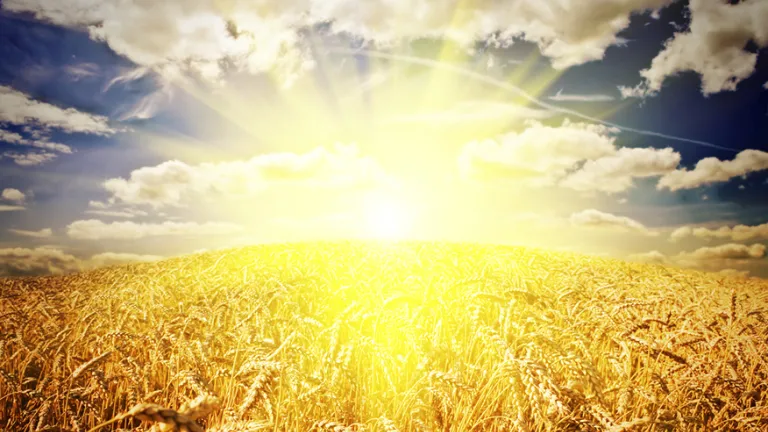Mysterious Festival Days
Psst. Let me tell you a secret. Millions of professing Christians don’t even know these days exist. Yet these festivals explain how and when God will have a personal relationship with every human being, including you and me. Here’s the inside story. It’s my story, and I hope it is or will be yours.
When I was a young child, my parents kept all the traditional Christian holidays including Christmas and Easter. We went to church on Sunday and lived like most other people who were part of mainstream Christianity.
I suspect we had our denominational biases like almost everyone else, but in general our religious life was set.
Then a strange thing happened. Mom and Dad traded in Christmas and Easter for a different set of observances—feast days or festivals. It was a confusing time for me.
Although I was too young to understand why they were making the change, I did perceive that we were different from our neighbors, and this seemed a bit mysterious to me. In fact, I made a point of emphatically explaining to them that I wanted to continue celebrating the traditional holidays—something my parents and I laughed about later. At this tender age, little did I know that I was experiencing firsthand, on my own level of understanding, that God's way of life is a mystery.
As I matured I learned that most of the people claiming to be Christian don't believe that the gospel—the good news—of Jesus Christ is a mystery at all. Most think that Jesus spoke in parables (stories containing moral lessons) so everyone would comprehend what He was saying. Most think His message is so simple and so easy to understand that all they have to do is pass it on and everyone will get it. Ah. That's what makes it a mystery!
Mystery book
Now let's get something straight. I'm not making this mystery business up. The Bible, the book that reveals God's instructions for us human beings, describes it that way.
In fact, Christ Himself—the One from whom Christianity gets its name—said the Kingdom of God is a mystery.
Notice the context in which Jesus made this statement: "But when He was alone, those around Him with the twelve asked Him about the parable. And He said to them, 'To you it has been given to know the mystery of the kingdom of God ; but to those who are outside, all things come in parables, so that "seeing they may see and not perceive, and hearing they may hear and not understand; lest they should turn, and their sins be forgiven them"'" (Mark 4:10-12, emphasis added).
In contrast to what most people think, Christ said He spoke in parables so everyone wouldn't understand. Only the few got it.
If you look up the word mystery in a Bible concordance (a book that identifies every passage using a particular word) you'll find that the word is used 22 times in the New Testament. In summary, it is used by Mark, Paul and John to describe God's way of life.
Occasionally, this word is used to describe "the mystery of iniquity [disobedience]" (2 Thessalonians 2:7), but most often it is used in connection with "the mystery of godliness" (1 Timothy 3:16 ). For an interesting study, find a concordance and look up these passages in your own Bible.
Mysterious celebrations
Among the many mysterious aspects of God's way of life are His annual festivals. The importance of and value in observing these days are hidden from most people.
Today it's common for people to dismiss the biblical festival days as celebrations that were just for ancient Israel.
They assume that these days have no relevance for New Testament Christians. The mystery truly is a mystery.
The reality is that these festivals are God's festivals; they aren't just Jewish celebrations (Leviticus 23:1-2). They're for everyone, eventually. These feast days have deep Christian meaning. They are reminders of things that we must do now to have a relationship with God, and shadows showing the shape of things that are going to happen in the future (Colossians 2:17). And they were kept by Jesus, the apostles and the New Testament Church — people whom we should be imitating (1 John 2:6; 1 Corinthians 11:1). So when are these festivals of God?
Unknown to most, the seven biblical celebrations of Christ occur in groupings in the northern hemisphere seasons of early spring, late spring and autumn. The first three festivals occur this year between April and June—the months covered by this issue of Vertical Thought. What do they mean?
Here's a brief overview of these first three celebrations:
Passover is the annual observance of Christ's death during which baptized members of the Church partake of bread and wine symbolizing Christ's broken body and His shed blood for the forgiveness of our sins. Part of the mystery is that it is supposed to be observed only once a year on the night Jesus was betrayed (1 Corinthians 11:23 ).
The service also involves washing another person's feet as a sign of humble willingness to serve one another. Christ told Peter that unless he participated in this part of the service, he would have no part with Him (John 13:8).
Observing Passover is an annual reminder that we belong to God. It reminds us of the baptismal covenant we make with Him and represents the path every person who comes to God must take.
The Days of Unleavened Bread are marked by putting leavened products (items like bread and cake that have leavening agents such as yeast, baking soda and baking powder that cause dough to rise) out of our homes (Exodus 12:15; 1 Corinthians 5:8). Leaven represents sin (our disobedience to God's instructions), and this annual observance reminds us that we must continually seek God's help to identify and put sin out of our lives.
Pentecost is the day the New Testament Church began. On this Holy Day thousands of people, including Christ's disciples, gathered in Jerusalem to observe this important festival. While God can grant His Spirit to whomever He will, at this beginning of the New Testament Church, only those who were observing Pentecost received the initial invitations to become part of His Church.
The order of these festivals teaches us an important lesson in the way God works with people. In order to receive God's Holy Spirit, pictured by Pentecost, we must first accept Jesus Christ and His shed blood for the forgiveness of our sins and then strive to live in accordance with God's instructions.
What are the dates for these observances? What are the other festivals? I won't tell you the entire mystery in this one article. But you can find out if you want to. Just read our free booklet God's Holy Day Plan: The Promise of Hope for All Mankind. It's a great mystery well worth your time to discover. The Bible says that eventually God's festival days will cease being mysteries because everyone will know about them. I love understanding and living "the mystery of godliness" now. I think you will too. VT






